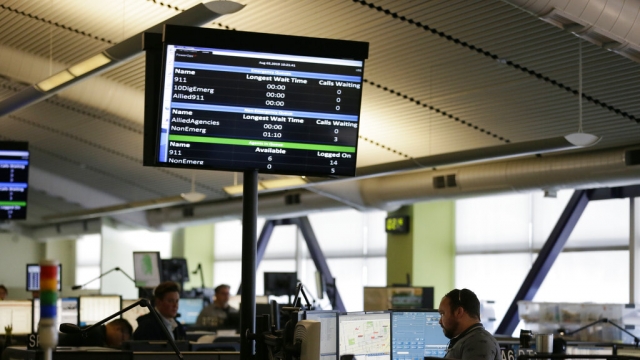Americans who are hard of hearing or deaf still face dangers in many parts of the country as alternatives to 911 call-in services for hearing impaired people are still inadequate or poorly services in many localities around the United States.
The infrastructure for 911 emergency services are still based off a land line frame work after they began development in the late 1960s.
The AccessSOS app was developed to try and fill gaps in service where hearing impaired or deaf people in the U.S. can be better protected in an emergency as 911 emergency services still face major inadequacies for text services.
SEE MORE: 988 suicide hotline adds support for American Sign Language
Imagine reaching out for help in an emergency, only to not be heard. That is the reality millions of Americans who are deaf or are experiencing hearing loss are faced with as a result of communication gaps in emergency services.
Gabriella Wong, who is the founder and CEO of AccesSOS said, "It blows my mind how behind we are."
The option to call 911 first became available to Americans in 1968. Prior to that, people needed to dial local 7-digit phone numbers to reach police, fire or emergency services.
In 2009, an emergency call center in Iowa became the first in the country to accept 911 text messages. Since then, more call centers have updated their technology in order to be able to receive and respond to 911 texts - but, the problem is still that the service is not currently available everywhere.
Wong said, "We think with new technology that you can get something instantly delivered to your doorstep - 911 should work that way. We watch TV and movies with, like, CSI type of things - and you think that they can triangulate you and follow you immediately, right? But, with 911, what I found out was that it was built in the sixties and seventies and it was based on land line technology - and some cities and areas can upgrade their equipment to the newest generation bells and whistles like next gen, technologically advanced systems. But, there are about 50% of 911 call centers in the U.S. that are behind."
Wong says upgrades need to be happening everywhere, right now.
In a recent Op-Ed for USA Today, Wongpointed to the Lewiston, Maine shootingsin October. That was where a handful of the victims were deaf - and she used it as evidence that change needs to happen.
Trending stories at Scrippsnews.com



